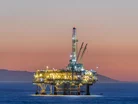Deep sea miners denied access to UK capital markets

Three of the UK's biggest banks, NatWest, Lloyds, and Standard Chartered, have pledged not to invest in deep-sea mining, according to an analysis by the Blue Marine Foundation and Deep Sea Mining Campaign. These prominent banks, which collectively own £2.3tn (US$2.9tn) in assets, equating to a third of the UK total, have made their capital unavailable to deep-sea miners, denying them access to UK capital markets.
i news reported that the UK government is facing increasing pressure to ban the practice, just as major companies are abandoning plans to mine the sea floor for precious metals and minerals. The banks have been joined by major tech companies such as Google and Samsung and car companies including BMW, Renault, and Volkswagen, who have all ruled out sourcing materials from the sea bed.
Jonny Hughes, Policy Manager at the Blue Marine Foundation, said, "With growing momentum amongst responsible lenders and businesses rejecting deep sea mining, it's time for the UK Government to show global leadership and back a moratorium on the practice before it is too late."
He added: "The UK is lagging behind other countries, including France, Germany, and New Zealand, which have all called for a moratorium or a ban. The UK's public support for a moratorium could be very influential in one being imposed."
What makes deep-sea mining so controversial?
A legislative ban on deep-sea mining in French waters was enacted by the French Parliament in January 2023, but France is not alone in opposing it. Other countries like Chile, Costa Rica, Ecuador, Germany, New Zealand, and Spain oppose the new industry, calling for a "precautionary pause" so legislators can finalize deep-sea mining regulations.
However, while many oppose this practice, Norway announced plans to open its seas to deep-sea miners earlier this month, aiming to become the first country to extract metals for batteries from its seabed and plans to open up an area of ocean floor nearly the size of Germany to mining. Nevertheless, the move has been criticised, including by Norway's environment agency. Supporters of deep-sea mining argue that the metals found on the sea floor are needed for mass electrification and renewable energy development.
Deep-sea mining continues to be a source of debate around the world
A potential environmental fallout from commercialising deep-sea mining, as well as uncertainty over returns, have prompted many potential investors and customers to oppose it.
Andy Whitmore, Finance Advocacy Officer at Deep Sea Mining Campaign, representing NGOs and citizens from the Pacific Islands, Australia, and Canada, said: "There is a vast list of reasons why financial institutions should be wary of lending to, underwriting or investing in deep sea mining – from reputational and operational risks to the regulatory uncertainty in international waters. "For the last three years, we have seen more lenders come to the conclusion that the risks are too great to invest in this new, experimental industry."
Because of the state of the industry and the lack of research, it is difficult to provide accurate estimates of the value of recoverable minerals. However, scientists have estimated that there is as much as US$150tn (£117tn) worth of gold at the bottom of the Earth's oceans.
The proponents of deep-sea mining contend that it could help fight climate change by taking mining pressure off critical land ecosystems and unlocking valuable resources such as nickel, cobalt, copper, and manganese. Nevertheless, environmentalists argue that subjecting these remote and relatively untouched regions of nature to such intensified industrial processes is harmful.
